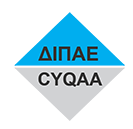
Magister Scientiae (Msc)
90 ects
English
Internationally Recognised
Online application submission

Human-Computer Interaction (HCI) focuses on the interactions between a human user and information technology. With the rapid advances in computing, the types of ICT devices with which we interact, but also the mode of interactions, have increased. Thus, to improve the quality of interaction between users and ICT, modern HCI takes multidisciplinary perspectives, drawing not only from computer science, but also cognitive science as well as human factors engineering.
For those with a technical background, obtaining an MSc in HCI offers opportunities for creativity and innovation in a range of contexts (e.g., industry, government, education). Similarly, for those whose background relates to human behaviors (e.g., social or cognitive psychology, cognitive science), pursing the MSc in HCI provides the necessary training and skills to apply their knowledge to practical endeavors related to the design of useful, usable digital technology.
The MSc in HCI is a modern educational offering, guided by the policy priority areas at both the National (i.e., Cyprus) and European levels. At the European level, there is current emphasis on digital transformation, with particular attention to the role of artificial intelligence (AI). The European Commission (EC) recognizes that AI can play a key role in addressing many grand challenges facing the world, as expressed in the Agenda 2030 (e.g., climate change, sustainability, reconciling economic development, social equity etc). However, the EC’s vision for AI is one of “Trustworthy AI,” which respects human values and human rights.
The human factors involved in designing, implementing, and deploying AI systems are fundamental to the vision of Trustworthy AI. The Coordinated Plan on AI explicitly mentions the need for a generation of scientists and engineers trained in user-centered information systems. Recognizing the increasing role that HCI plays in AI systems – both in terms of their development and evaluation, but also, the creation of methods and programs to encourage positive relations between users and these systems – the OUC offering is grounded in HCI theories and methodologies, but also incorporates principles and tools from AI and data science.
The key objective of the MSc in Human-Computer Interaction is to promote the philosophy and practice of human-centered computing. The programme focuses on the knowledge and methodologies needed to design, evaluate and implement information applications that meet the needs of end users of digital technologies, as well as managing the overall process, taking a modern approach as to enable graduates to engage with the emerging technologies of today and the future.
EUROPEAN CREDIT TRANSFER SYSTEM – ECTS: 90
TEACHING LANGUAGE: English
LEVEL of Study: Postgraduate (Masters)
DEGREE AWARDED: Magister Scientiae (Master of Science, M.Sc.)
The MSc in HCI enables students to achieve the following learning outcomes:
- Identify how the technical characteristics and affordances of an information system / application may influence observed social structures and user behaviors.
- Determine the social and psychological traits of end users that influence how they use an information system / application.
- Implement a prototype complex application or website.
- Study a given group of end users, describe their information and/or social needs, and suggest possible design solutions.
- Make design recommendations for a new system / application on the basis of a set of organizational needs.
- Plan out a project; solve problems in environments characterized by change.
- Collect and analyze qualitative and quantitative data related to user information needs and behaviors.
- Evaluate the ethical challenges that a given system or application might pose to its users or to society at large.
- Analyze, systematize, evaluate massive information resources that are generated by the digital revolution.
- Evaluate a given approach / design for an information system / application against desired outcomes.
The programme is evaluated and accredited by:
The Open University of Cyprus (OUC), through its participation in the European project "Liaison Offices with the Labour Market", offers to students of all its programmes of study, the optional and free of charge Thematic Unit (i.e. Module) entitled "Industry Placement". This module provides students opportunities for a placement to gain professional experience in their particular field of study, and the hosting institution can be any public or private organisation operating in the Republic of Cyprus.
Each student has the right to participate in this offering once or twice during his / her studies, provided that s/he meets the required conditions.
Request more information by contacting the OUC Liaison Office here.
Employment opportunities include the following:
- Web designer / online community designer
- Project manager (Web development)
- Web/mobile communication strategist
- Content manager; information / records manager
- Information analyst; business intelligence specialist; marketing research specialist
- Information services specialist
- Entrepreneur / IT start-ups
- Researcher / Web scientist
Applicants must provide evidence of the following:
- A first degree from a recognized university in a relevant area of study (e.g., Information Systems, Computer Science, Data Science, Social or Cognitive Psychology).
- Very good command of the English language. All candidates need to demonstrate that they meet the University’s English language requirements by submitting the relevant certificates along with their application (minimum grade IELTS 5.5 or any other equivalent). Details of the specific English language requirements can be found here.
- The ability to implement (at least) a prototype design or application. Applicants will be asked to provide a statement as to their abilities in this area.
Concerning criterion 3, applicants will be asked to provide a short statement on their relevant abilities, which shall be accessed by the Programme Coordinator.
The tuition fees for this programme amount to €6,975. The tuition fees per module are €775 (10 ects) and €2,325 for the master thesis (30 ects). Open University of Cyprus’ Council has decided to grant an extra 10% discount for the chosen Thematic Units of the academic year 2025-2026.
The Programme consists of 90 ECTS units taught over three semesters of full time study. Each course in the Programme is 10 ECTS units, while a required thesis is 30 ECTS units.
| Course code | Course title | Course type | Pre-requisite Modules | Hours | Workload |
| 1st Semester | Hours | ECTS | |||
| HCI511 | Interaction Science | Compulsory | 250-300 | 10 | |
| HCI512 | User Research and Evaluation I | Compulsory | 250-300 | 10 | |
| HCI513 | User Research and Evaluation II | Compulsory | 250-300 | 10 | |
| 2nd Semester | |||||
| HCI521 | User-Centered Design Studio | Compulsory | 250-300 | 10 | |
| HCI522 | Advanced Topics in Interactive Technologies | Compulsory | HCI511, HCI512 | 250-300 | 10 |
| 3rd Semester | |||||
| HCI611 | Social Data and Analysis | Elective | HCI511, HCI512 | 250-300 | 10 |
| HCI612 | Human Computation and Crowdsourcing | Elective | HCI511, HCI512 | 250-300 | 10 |
| HCI613 | IT Project Management | Elective | HCI511, HCI512 | 250-300 | 10 |
| SEC112 | Information Security Management | Elective | HCI511, HCI512 | 250-300 | 10 |
| COS512 | Introduction to Artificial Intelligence | Elective | HCI511, HCI512 | 250-300 | 10 |
| Master Thesis | |||||
| HCI699 | Preparation for MSc Thesis | Compulsory | 0 | ||
| HCI701A | Master Thesis 1 | Compulsory | HCI511, HCI512 HCI699 |
250-300 | 10 |
| HCI701B | Master Thesis 2 | Compulsory | HCI701A | 500-600 | 20 |
| Total | 90 | ||||
| Industry Placement | |||||
| HCI695 | Industry Placement (1st placement) | 5 | |||
| HCI696 | Industry Placement (2nd placement) | 5 | |||
Each student can optionally enrol, once or twice, in the free of charge Thematic Module "Industry Placement", which awards five (5) ECTS. The module offers a structured placement, designed to offer students specific industry and professional experience in their particular field of study, and to allow them to build their skills in a real-world setting.
HCI695 - Industry Placement (1st placement)
HCI696 - Industry Placement (2nd placement)
Request more information by contacting the OUC Career and Liaison Office here
Academic Personnel
Programme Director : Jahna Otterbacher, Associate Professor,
For additional information, please contact
Ms. Marianna Prodromou (
or/and
Ms. Xenia Pavli, (
Contact Form



















